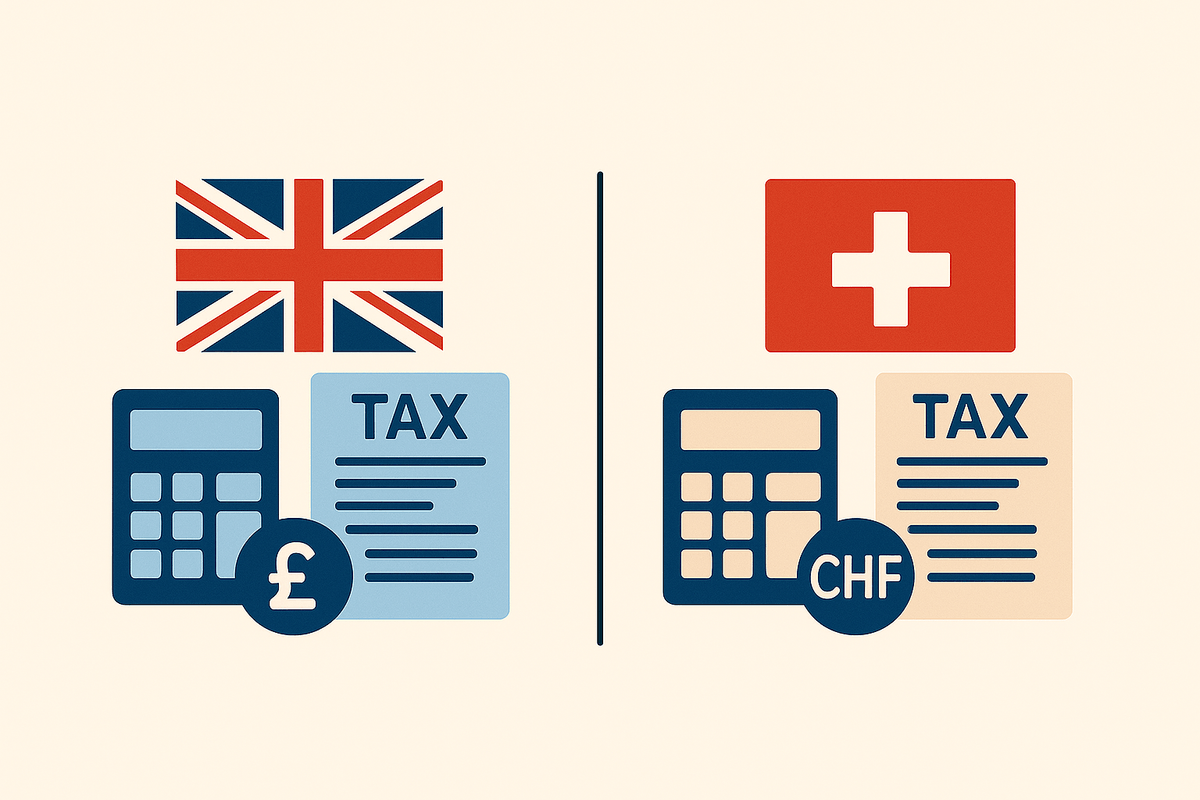As a freelancer, understanding the tax landscape in your country of operation is crucial for compliance, financial planning, and avoiding unexpected penalties. Many perceive the UK's tax system as stricter than Switzerland's, often citing rigorous enforcement by HM Revenue and Customs (HMRC) and rules like those governing expense claims.
For instance, if a freelancer attempts to claim personal holidays as "business travel", both countries treat this as non-deductible, but the UK's audit processes and behavioral-based penalties can feel more punitive.
In this article, we'll dissect the main aspects of how freelancers (typically operating as self-employed sole traders) are treated from a tax perspective in both nations, drawing on official guidelines and recent updates as of 2025. We'll cover registration, income tax, social contributions, VAT, deductible expenses (with a focus on travel), and penalties, highlighting key differences.
